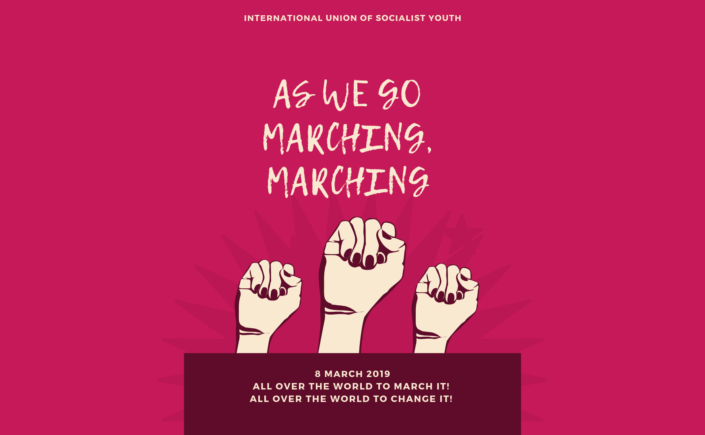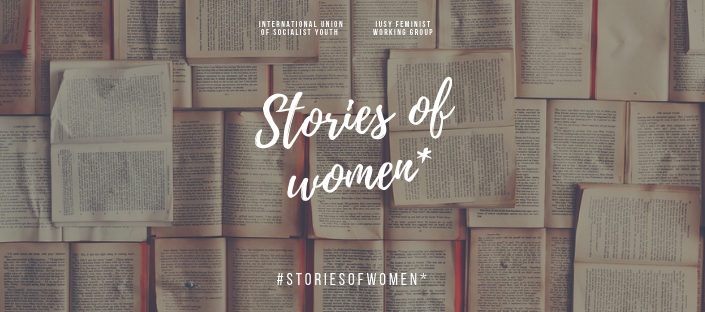
Desde la Unión Internacional de Juventudes Socialistas celebramos el nuevo tratamiento en el Congreso de Argentina, del proyecto de ley de Interrupción Voluntaria del Embarazo y llamamos a votar a favor.
Desde IUSY buscamos la igualdad, defendemos los derechos humanos y luchamos por empoderar a las mujeres en todos los aspectos que atraviesan su vida. Creemos que es imprescindible se reconozca a las mujeres como sujetos de derechos, como ciudadanas y agentes morales capaces de decidir si desean o no ser madres, garantizándoles desde el Estado, su derecho a la salud en forma integral. Asegurar que sean sujetos capaces de ejercer sus derechos sexuales y reproductivos, donde el Estado provea acceso a la educación sexual integral y a servicios de salud reproductiva, incluido el aborto.
Desde hace más de 15 años la Campaña de Educación Sexual para decidir, Anticonceptivos para no abortar, y Aborto Legal Seguro y Gratuito para no morir, impulsa este debate y lucha por los derechos reproductivos y la libertar de los cuerpos gestantes.
En Argentina se practican aproximadamente 450 mil abortos por año, y la tasa de muertas por abortos clandestinos asciende a 43 (representando el 17,3% del total de muertes maternas). Realizarse un aborto cuesta a partir de $15000, y las pastillas de misoprostol tienen un precio por encima de $5200. Las que más sufren la ilegalidad son las mujeres pobres, quienes mueren por no poder afrontar los costos de acceder a formas de aborto seguras. Otra barrera importante, es conforme nos alejamos de las grandes urbes.
En los países donde se ha despenalizado el aborto, las muertes maternas por abortos ya no existen y la cantidad de abortos realizados se redujeron. Incluso durante los gobiernos progresistas en la ciudad de Rosario, Argentina, se ha reducido a cero la mortalidad por abortos y, en igual sentido, dichos gobiernos impulsaron en la Provincia de Santa Fe, la produccciónMisoprostol en laboratorios públicos. Entender el aborto como política de salud pública se hace ineludible ante estas cifras y evidencias.
La despenalización del aborto es una deuda de la democracia y su legalización es necesaria en términos de justicia social, de igualdad, de la salud de las mujeres y de los derechos humanos.
Es urgente #QueSeaLey!
Legal, safe and free abortion in Argentina!
From the International Union of Socialist Youth (IUSY) we welcome the new treatment in the Congress of Argentina, the bill of Voluntary Interruption of Pregnancy and we call for a vote in favor.
We seek and defend equality, human rights and fight to empower women in all aspects of their lives. We believe that it is essential to recognize women as subjects of rights, as citizens and moral agents capable of deciding whether or not they want to be mothers guaranteeing their right to health and safety by the state. Women are subjects capable of exercising their sexual and reproductive rights, where the State ensures to provide access to comprehensive sexual education and reproductive health services, including abortion.
For more than 15 years, the Campaign for Sexual Education to decide, Contraceptives not to abort, and Safe and Free Legal Abortion not to die, has promoted this debate and continued fighting for reproductive rights and freedom of pregnant bodies.
In Argentina, approximately 450,000 abortions are performed per year, and the death rate from clandestine abortions is 43 (representing 17.3% of all maternal deaths). Getting an abortion starts from $15,000. Misoprostol pills cost above $5,200. Women who suffer the most from illegality are the poor. They die because they cannot afford the costs of accessing safe forms of abortion. Another major obstacle is when we move away from big cities.
In countries where abortion has been decriminalized, maternal deaths from abortions no longer exist and the number of abortions performed has dropped. During the progressive governments in the city of Rosario, Argentina, mortality from abortions has been reduced to zero and the production of Misoprostol in public laboratories have been promoted in the Province of Santa Fe. Understanding abortion as a public health policy is unavoidable given these figures and evidences.
The decriminalization of abortion is a debt of democracy and its legalization is necessary in terms of social justice, equality, women’s health and human rights.
It is urgent #QueSeaLey!


